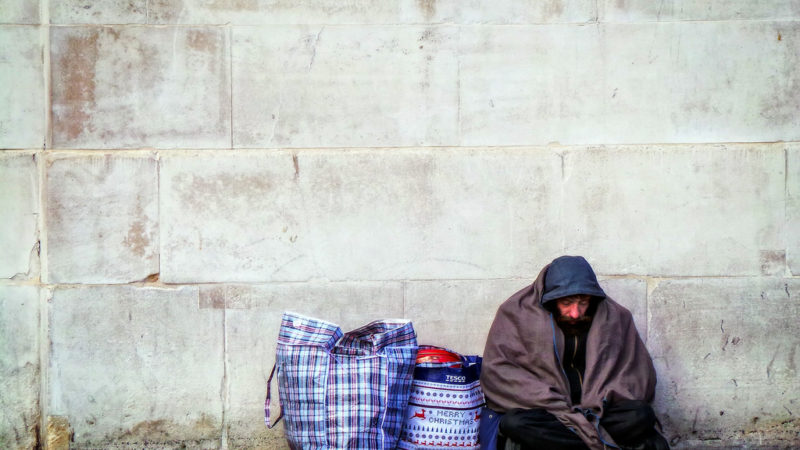Everyone should be housed safely.

The pivotal importance of good quality housing to confronting the Covid-19 crisis, as governments worldwide are relying on people to stay at home to prevent virus spread, has been underscored by Leilani Farha, UN special rapporteur on adequate housing.
Farha described housing as the being in the ‘frontline’ of the battle against the pandemic and called for urgent action to prevent anyone falling into homelessness and to ensure access to appropriate housing for those without.
According to Farha, 1.8 billion people worldwide live in homelessness and grossly inadequate housing, often in overcrowded conditions, lacking access to water and sanitation – making them particularly vulnerable to contracting the virus, as they are often suffering from multiple health issues.
The UK’s woeful performance over a decade of austerity on homelessness and meeting housing need, relative to other European economies, now requires that the government put forward a comprehensive action plan, which to date has been markedly absent.
During the crisis so far, housing announcements have only included help for mortgagees and suspension of evictions from social and private rented housing for three months.
That’s why 100 housing academics and researchers, working in universities and think-tanks across the UK have called for a raft of housing and income maintenance measures to be actioned urgently. Proposed measures include:
- The use of empty housing and unused hotel suites for homeless people, to make sure everyone is housed safely and can self-isolate in a sanitary environment. These should be requisitioned if necessary.
- Protection for occupants against financial vulnerability, default on rent and mortgage payments, and interest on arrears, through mortgage and rent freezes and the provision of a basic income for all.
- A freeze on all evictions under all applicable laws, including those from asylum and refugee housing and Gypsy-Traveller sites, and all repossessions and repossession proceedings for a sufficient period.
- A moratorium on arrests for rough sleeping and suspension pending repeal of the Vagrancy Act 1824.
- Removal of legal barriers so that anyone who is at risk of, or is already homeless, can access self-contained accommodation.
- Affirming the right to urgent maintenance work on housing under all conditions including self-isolation and providing guidance and resources to protect workers.
- Ensuring adequate provision of pay, access to Covid-19 testing kits, resources and information to all frontline housing and homelessness workers and volunteers as soon as possible.
- Providing resources and guidance to address the mental health impacts of self-isolation, particularly for vulnerable groups such as the LGBTIQ+ community, disabled people, older individuals, and refugees and asylum seekers.
- Urgent steps to respond to a potential rise in domestic violence for those forced to self-isolate, including dedicated helplines, ongoing engagement with relevant organisations, provision of safe homes, and training for the awareness of all relevant public employees to this issue.
- The government has moved to ban evictions from social and private housing but has not yet provided assurances regarding the welfare system to ensure people can continue to pay their rent if they lose work or income.
- Arrears built up will not therefore result in eviction during the period but will require a repayment plan’ to be established in the future.
Taken together, these measures should help stem the spread of the virus and make sure that the most vulnerable in the UK’s housing system do not bear the brunt of the crisis.
Kevin Gulliver is director of Birmingham-based research charity the Human City Institute, is former Chair of the Centre for Community Research, and part of the SHOUT save social housing campaign but writes in a personal capacity. His interests are social and economic policy, especially relating to housing, health, wellbeing, communities, deprivation and disadvantage, and inequalities.
To reach hundreds of thousands of new readers and to make the biggest impact we can in the next general election, we need to grow our donor base substantially.
That's why in 2024, we are seeking to generate 150 additional regular donors to support Left Foot Forward's work.
We still need another 124 people to donate to hit the target. You can help. Donate today.



